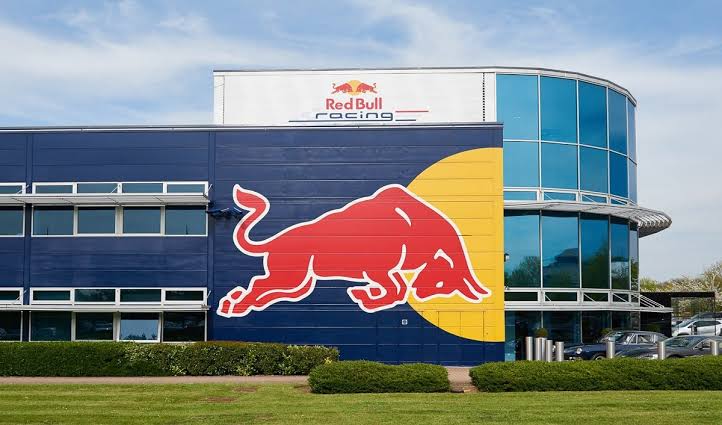Red Bull’s Football Revolution
In recent years, the energy drink giant Red Bull has made significant waves in the world of football through its strategic investments in clubs around the globe. Red Bull’s involvement in football is more than just sponsorship; it represents a unique model of ownership and development that has garnered both admiration and skepticism. “Red Bull’s Football Revolution”
Thank you for reading this post, don't forget to subscribe!This article explores the company’s journey into the footballing world and the impact it has had.Red Bull’s first foray into football was the acquisition of the Austrian club SV Austria Salzburg in 2005, subsequently rebranding it as Red Bull Salzburg. This marked the beginning of a distinctive approach to club ownership. Red Bull’s influence extended beyond just financing the club; it introduced a high-intensity style of play and implemented a comprehensive youth development system. “Red Bull’s Football Revolution”

The results were immediate, with the club enjoying domestic success and making a notable impact in European competitions.In 2010, Red Bull extended its football empire to the United States by founding the New York Red Bulls, formerly the MetroStars. “Red Bull’s Football Revolution”
Their presence in Major League Soccer (MLS) brought a new level of professionalism and marketing to the league. Red Bull’s investment went beyond just the first team; they invested heavily in youth academies, helping nurture talent in a country where soccer was still growing.Red Bull’s approach to club ownership took another bold step with the purchase of RB Leipzig in 2009.
The club’s rapid rise through the German football pyramid was met with mixed reactions. Critics argued that it was against the principles of fan-owned football, while supporters saw it as a model for sustainable success. Leipzig’s ascent to the Bundesliga and Champions League participation demonstrated that their approach could yield results.”Red Bull’s Football Revolution”
One of the most intriguing aspects of Red Bull’s involvement in football is its global approach. The Red Bull Global Soccer network links its clubs and academies in a way that promotes a consistent style of play, player development, and even coaching methodologies. This approach, similar to that of a multinational corporation, sets Red Bull apart from traditional football ownership models.”Red Bull’s Football Revolution”
Critics argue that Red Bull’s involvement in football dilutes the essence of the sport, which is often deeply rooted in local communities and history. The rebranding of clubs and the introduction of corporate identities can create friction. However, proponents highlight the positive impact on player development, professionalism, and the introduction of a more globalized football landscape.”Red Bull’s Football Revolution”
In conclusion, Red Bull’s investment in football has been a transformative force. It challenges the traditional ownership model by introducing a more corporate approach, focusing on youth development, and maintaining consistency across its clubs worldwide. Whether one sees it as a positive or negative force in football, there is no denying the impact Red Bull has had on the sport. As the football world continues to evolve, Red Bull’s unique model is likely to remain a topic of discussion and debate.”Red Bull’s Football Revolution”
as it blazes a trail in the footballing landscape.
This innovative approach to club ownership and development has opened up new possibilities for the sport.Red Bull’s investment in football has not been without its challenges. The pushback from traditionalists who value the historical and community aspects of football is undeniable. The rebranding of clubs and their integration into the Red Bull network can sometimes feel impersonal and corporate.”Red Bull’s Football Revolution”
Moreover, concerns about the potential for over-commercialization and the loss of fan culture have been raised.On the other hand, Red Bull’s positive impact on player development is evident. The investment in youth academies and consistent coaching methodologies has led to the emergence of talented players who may have otherwise gone unnoticed. This emphasis on grassroots development benefits not only Red Bull’s teams but the broader football community.”Red Bull’s Football Revolution”
Furthermore, the international network Red Bull has established between its clubs provides a unique platform for talent exchange and scouting. Players can move between clubs within the network, gaining experience in different leagues and styles of play. This level of global cooperation is unprecedented in the footballing world.In conclusion, Red Bull’s influence in football is a testament to the changing nature of the sport.”Red Bull’s Football Revolution”
While it challenges the conventional ownership model and sparks debates about authenticity and tradition, it undeniably advances the game in terms of player development, professionalism, and global reach. Red Bull’s investment in football may be polarizing, but its innovative approach continues to shape the ever-evolving landscape of the beautiful game. Whether seen as a commercial force or a positive contributor to football’s evolution, Red Bull’s impact on the sport is undeniable and continues to be a topic of discussion within the footballing community.
